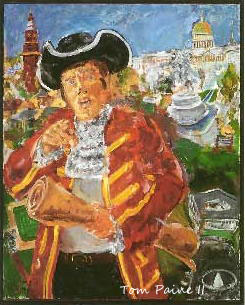[10] See United States v. Ptasynski , 462 U.S. 74, 84-85 (1983) (classification must have some nonpreferential
basis).
[11] Quoted in From
Sunshine to Moonshine: How the Louisiana Legislature Hid the Governor's Records
in the Name of Transparency, Blanchard, 71 Louisiana L. Rev. 703, 708
(2011).
[12] See United States Of America v. Schultz, 529 F. Supp.2d 341, 348 (N.D.N.Y. 2007): "[T]o prove a
violation of - 6700, the Government must also show that the [defendants] made
false or fraudulent statements concerning the tax benefits of participating in
the plan or arrangement." [Citation.] "Two types of statements
fall within the statutory bar: statements directly addressing the availability
of tax benefits and those concerning factual matters that are relevant to the
availability of tax benefits." [Citation.]
[13] This civil rights claim might not be valid against Fed officers,
since they are not officers of the United States. Melcher v. FOMC,
644 F.Supp. 510 (D.D.C. 1986). A public
nuisance claim would rope in Fed defendants.
See Redevelopment Agency v. BNSF Railway , 09-16585 (9th Cir. 6-28-2011) : "California law defines a nuisance, in part, as "[a]nything
which is"an obstruction to the free use of property, so as to interfere with
the comfortable enjoyment of life or property.' Cal. Civ. Code - 3479." However, for my purposes, less is more.
Next Page 1 | 2 | 3 | 4 | 5 | 6 | 7 | 8
(Note: You can view every article as one long page if you sign up as an Advocate Member, or higher).





